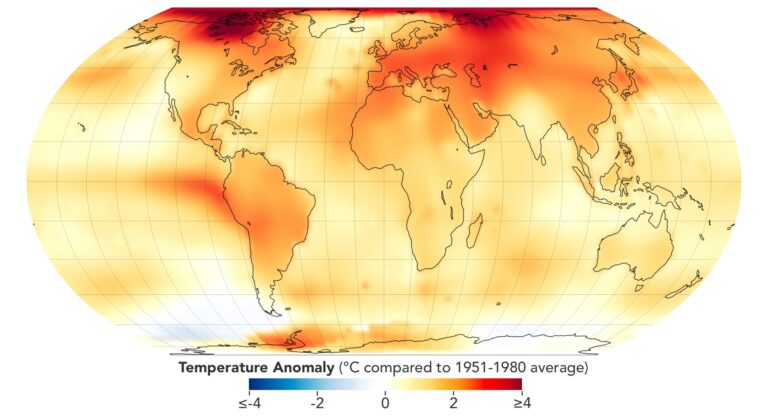As unprecedented heatwaves scorch East Asia, Japan and South Korea are grappling with soaring temperatures that have shattered long-standing heat records. Authorities warn of escalating health risks and strain on infrastructure as millions endure relentless sweltering conditions. This latest climate anomaly underscores growing concerns over the impact of global warming in the region, prompting urgent calls for adaptive measures and heightened preparedness.
Rising Temperatures Shatter Heat Records Across Japan and South Korea
Unprecedented heat waves have swept across Japan and South Korea this week, pushing temperatures well beyond historical averages and shattering previous records. Urban areas, including Tokyo and Seoul, experienced blistering highs exceeding 40°C (104°F), forcing authorities to issue widespread heat warnings. Local governments have mobilized cooling centers and urged residents to stay hydrated and limit outdoor activities during peak afternoon hours to mitigate health risks associated with the extreme heat.
Experts attribute the escalating temperatures to a combination of persistent high-pressure systems and the broader impact of climate change accelerating heat intensity. Immediate consequences have been felt across various sectors:
- Energy demand surges: Air conditioning usage has led to increased strain on power grids, raising concerns about possible blackouts.
- Agricultural stress: Crop yields, particularly rice and vegetables, face significant threats from prolonged heat stress and drought conditions.
- Public health challenges: Hospitals report rising admissions for heat-related illnesses, especially among elderly and vulnerable populations.
| City | New Record High | Previous Record | Year of Previous Record |
|---|---|---|---|
| Tokyo | 40.3°C | 39.5°C | 2018 |
| Seoul | 39.8°C | 38.9°C | 2013 |
| Osaka | 39.5°C | 38.7°C | 2007 |
Impact on Public Health and Infrastructure Amid Unprecedented Heatwave
Hospitals across Japan and South Korea are grappling with a surge in heat-related illnesses as temperatures soar to unprecedented levels. Emergency rooms have reported a dramatic increase in cases of heatstroke, dehydration, and heat exhaustion, predominantly affecting vulnerable groups such as the elderly and outdoor workers. Local health services have issued urgent advisories, encouraging citizens to stay hydrated and avoid peak sun hours. The strain on medical facilities is palpable, with some clinics operating beyond capacity and calling for additional resources to manage the crisis.
The extreme heat has also exposed critical weaknesses in urban infrastructure. Power grids are under immense pressure due to skyrocketing demand for air conditioning, leading to rolling blackouts in some regions. Public transportation networks are struggling with overheating systems, causing delays and safety concerns. Several cities have implemented emergency cooling centers and adjusted transit schedules to protect commuters. Below is a summary of key impacts observed in the affected areas:
| Impact Area | Notable Consequences | Response Measures |
|---|---|---|
| Healthcare | +30% ER visits for heat-related cases | Expanded emergency capacity, public advisories |
| Power Supply | Frequent blackouts in metropolitan zones | Load shedding, grid reinforcement plans |
| Transportation | Train delays, system failures due to heat | Modified schedules, air-conditioned cooling stations |
Urgent Calls for Enhanced Climate Action and Heatwave Preparedness Plans
As blistering heatwaves shatter temperature records across Japan and South Korea, experts warn that current measures to address climate change and public health preparedness are falling critically short. Rising mercury levels not only signal an alarming trend in global warming but also expose vulnerable populations to increased risks, from heatstroke to long-term chronic illnesses. Scientists emphasize the urgency of adopting more aggressive climate policies, investing in resilient infrastructure, and expanding early warning systems to better shield communities from worsening extremes.
Effective heatwave preparedness requires a multi-faceted strategy. Key components include:
- Enhanced monitoring: Deployment of real-time weather and health surveillance networks.
- Public education: Outreach campaigns targeting heat response behaviors among at-risk groups.
- Urban planning: Increased green spaces and heat-reflective materials to mitigate urban heat islands.
- Resource allocation: Strengthening emergency response units and expanding cooling centers.
| Country | Record Temp (°C) | Heat-Related Incidents |
|---|---|---|
| Japan | 41.1 | 1,200+ |
| South Korea | 40.5 | 950+ |
To Wrap It Up
As unprecedented heatwaves continue to scorch East Asia, the record-breaking temperatures in Japan and South Korea underscore the urgent challenges posed by global climate change. With the mercury rising and heat-related health risks mounting, experts warn that such extreme weather events may become the new norm unless concerted action is taken worldwide. The evolving situation demands close monitoring and swift responses to protect vulnerable populations and infrastructure in the region.




